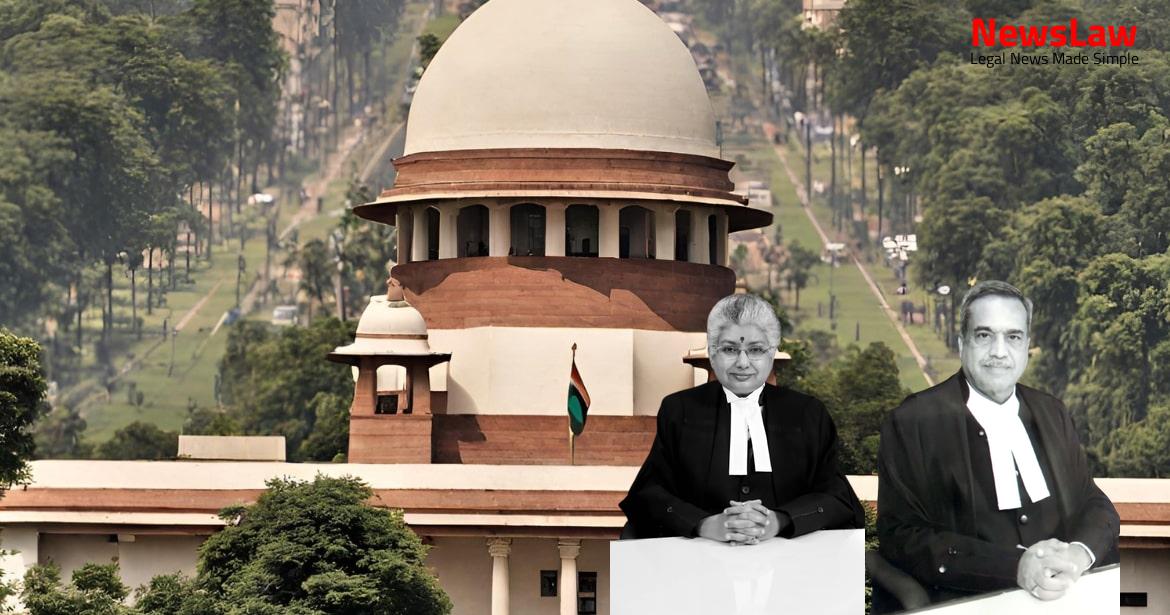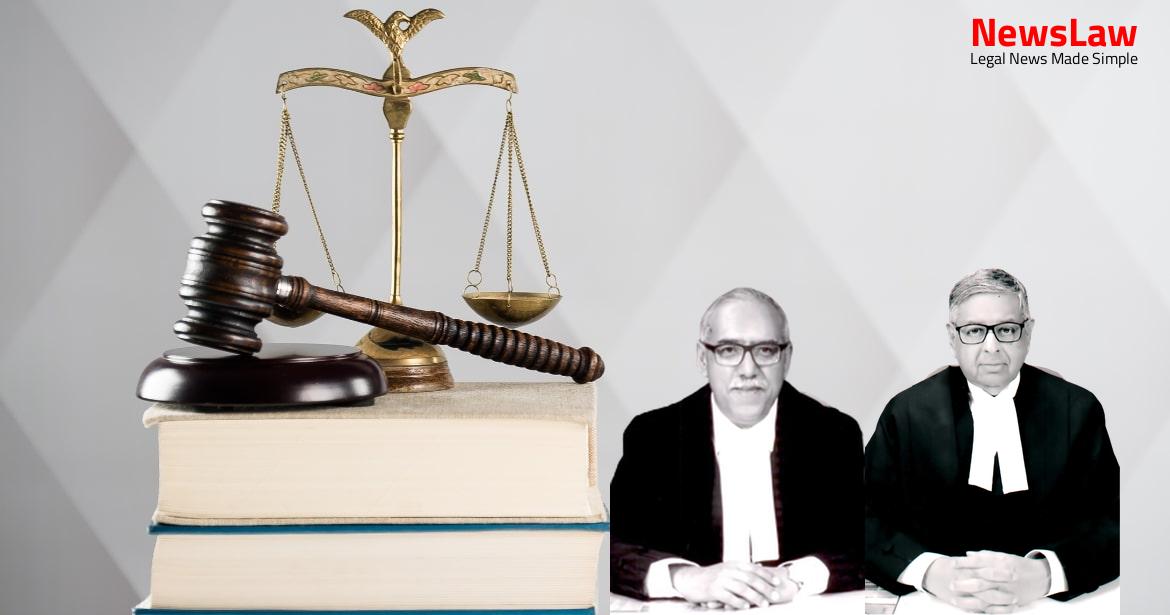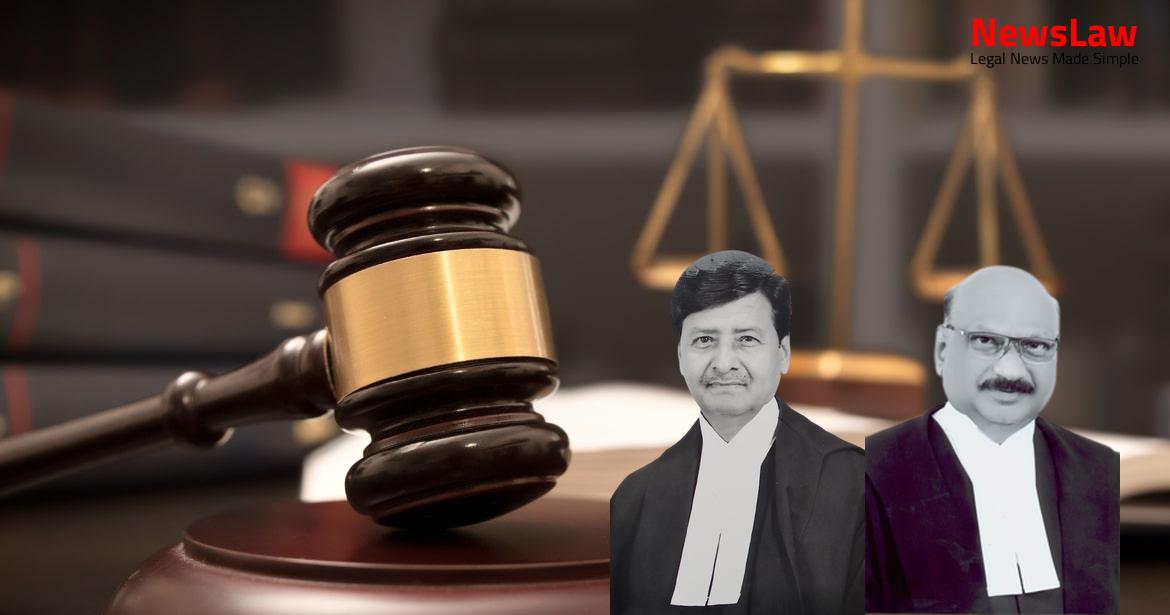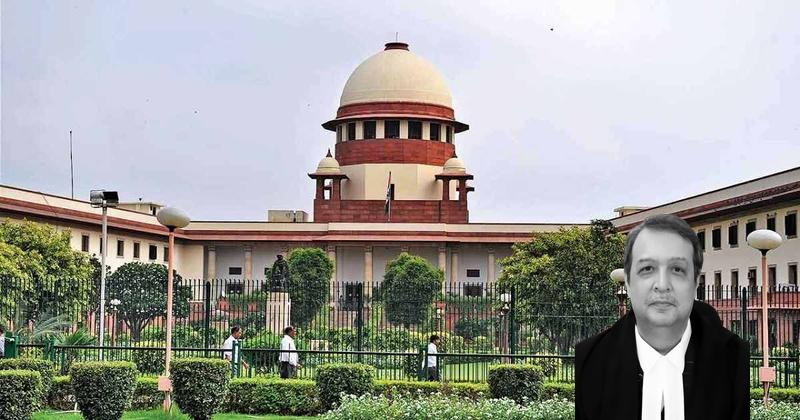Explore the intricate legal analysis regarding the High Court’s jurisdiction in a recent case where the distinction between revision and appeal was pivotal. The court’s delineation on converting acquittals into convictions sheds light on the nuanced legal processes involved. Understanding this distinction is crucial for comprehending the nuances of the legal system and ensuring justice is upheld effectively.
Facts
- The victims filed Criminal Appeal Nos. 108 to 110 of 2012 challenging the acquittal of the accused under Sections 307 and 506(ii) IPC.
- The Chief Judicial Magistrate convicted the accused under various offences except Sections 307 and 506(ii) IPC, leading to the accused being acquitted under those sections.
- The accused filed Criminal Appeal No. 92/2012 before the first appellate Court, which resulted in their acquittal.
- The victims filed criminal appeals against the acquittal of the accused under Sections 307 and 506(ii) IPC, which were dismissed.
- Original accused nos. 6 to 8 then preferred the present appeals after the High Court reversed the acquittal and convicted them, modifying the sentences imposed by the trial Court.
- The first appellate Court allowed the appeal by the accused and acquitted them.
- The victims filed criminal revision applications before the High Court, which set aside the first appellate Court’s decision and convicted the accused for offences other than Sections 307 and 506(ii) IPC.
Also Read: Ruling on Circumstantial Evidence in Murder Case
Issue
- High Court’s revisional jurisdiction under Section 401 Cr.P.C.
- Justification of setting aside acquittal and convicting the accused
- Conversion of finding of acquittal into one of conviction
Also Read: Challenging Legal Presumptions in Negotiable Instrument Cases
Arguments
- The Senior Advocate representing the accused argues that the High Court erred in reversing the acquittal and convicting the accused under Section 401 Cr.P.C.
- Citing case laws like K. Chinnaswamy Reddy v. State of Andhra Pradesh and others, it is contended that the High Court should have given its own finding and remitted the matter to the trial or first appellate court.
- The amendment in Section 372 Cr.P.C. allows the victim to appeal against orders of acquittal, negating the need for a revision application against acquittal judgments.
- Referring to the Mallikarjun Kodagali v. State of Karnataka case, it is emphasized that victims have an absolute right to appeal against acquittals under Section 372 Cr.P.C., without needing leave to appeal.
- The Senior Advocate highlights the availability of appeal rights to the victims under Section 372 Cr.P.C. and underscores that the High Court’s jurisdiction under Section 401 Cr.P.C. does not extend to converting acquittals into convictions.
- It is pointed out that the High Court did not pass a specific order treating the revision application as a petition of appeal, questioning the validity of the conviction in the present case.
- The Senior Advocate refrains from delving into the merits of the case, stressing on the need to remand the matter to the High Court for proper consideration.
- Victims’ right to appeal under Section 372 Cr.P.C. not to be taken away due to preference for revision applications
- High Court required to pass judicial order to treat revisional applications as petitions of appeals
- Accused to be given opportunity as in an appeal against acquittal
- Absence of private respondents noted
- Revisional court has limited scope, appellate court wider jurisdiction
- Revisional and appellate jurisdiction distinct and separate
- Prayer to treat revision applications as appeals under Section 372 Cr.P.C. or remand to High Court for conversion
- Opposition by Senior Advocate appearing for accused against treating revision applications as appeals under Section 401 Cr.P.C.
Also Read: Legal Analysis Critique in High Court’s Quashing Order
Analysis
- The High Court, in a revision application against the order of acquittal, can set aside the order and remit the case for retrial if material evidence was overlooked by the trial court.
- The power of revision does not allow the High Court to convert a finding of acquittal into one of conviction.
- In cases of misreading of evidence, non-consideration, or perverse appreciation of evidence, the High Court can set aside an order of acquittal and direct a fresh disposal by the trial court.
- Interference with an order of acquittal in revision should occur only in cases of manifest error of law or procedure, resulting in a miscarriage of justice.
- The High Court can either order a retrial or direct the appeal court to rehear the appeal, depending on the circumstances of each case.
- If the appeal court ruled out evidence admitted by the trial court, the proper course is to send the appeal back for rehearing to the appeal court.
- In cases where the victim has a right of appeal against an acquittal but has not availed the remedy, a revision application should not be entertained, and the victim must prefer an appeal.
- High Court may remit the matter to the trial Court and direct retrial in cases of acquittal by the trial Court
- Revisional jurisdiction may be justified in certain circumstances as laid down by decisions of the Court
- Section 401(3) of Cr.P.C. prohibits converting a finding of acquittal into one of conviction
- Retrial or rehearing of the appeal may be ordered instead
- High Court may interfere in exceptional cases to correct manifest illegality or prevent gross miscarriage of justice
- Options available to High Court when acquittal is passed by first appellate court: remit to first appellate court for rehearing or remit to trial court for retrial
- Under Section 401(4) of the Cr.P.C., if an appeal can be filed but is not, no revision can be entertained from the party who could have appealed.
- After the 2009 amendment in Section 372 Cr.P.C., victims have the right to appeal against orders of acquittal.
- If a victim does not file an appeal against an order of acquittal, they cannot seek revision and must file an appeal instead.
- Filing an appeal is beneficial for the victim as the appellate court has wider jurisdiction compared to the revisional jurisdiction.
- The High Court can treat an application for revision as a petition of appeal if it is satisfied that the application was made under the erroneous belief that no appeal lies thereto.
- This can be done in the interests of justice as per sub-section (5) of Section 401 Cr.P.C.
- The High Court must pass a judicial order, even if formal, to officially treat the application for revision as a petition of appeal.
- The order must clearly state the reasons and necessity for treating the application in such a manner.
Decision
- The present appeals are allowed in the specified terms.
- The High Court is directed to treat the revision applications as appeals under Section 372 Cr.P.C. and decide them accordingly.
- The court may set aside the impugned judgment and order passed by the High Court, either convicting the accused or remitting the matter for rehearing by the first appellate Court.
- The High Court is required to pass a judicial order while treating the revision application as a petition of appeal.
- Considering the victims’ statutory right of appeal and in the interest of all parties, the matter is remitted to the High Court to treat the revision applications as petitions of appeals under Section 372 Cr.P.C.
- The impugned judgment and order passed by the High Court is quashed and set aside, with the matters being remitted to the High Court.
Case Title: JOSEPH STEPHEN Vs. SANTHANASAMY (2022 INSC 96)
Case Number: Crl.A. No.-000090-000093 / 2022



